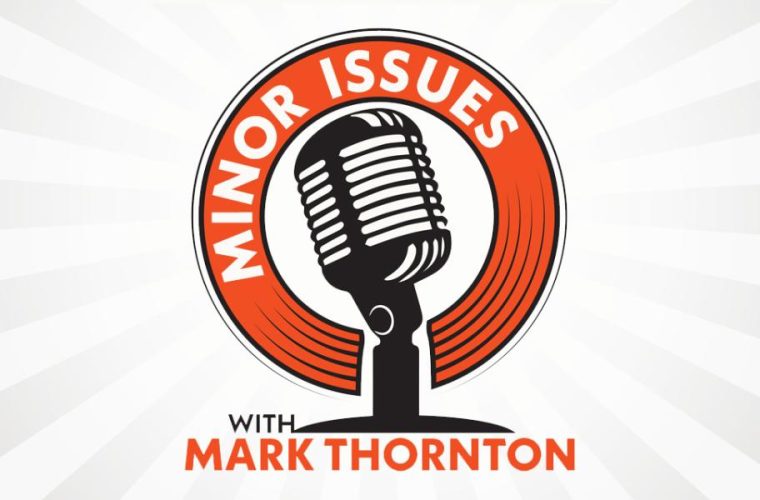
Edmund Phelps on Egalitarianism
The eminent economist Edmund Phelps is a “liberal” in the modern sense, not a libertarian, but in his recent book My Journeys in Economic Theory (Columbia University Press, 2023), he makes a number of points that those of us who are libertarians will find useful.
Opponents of rights-based libertarianism like Andrew Koppelman in his book Burning Down the House say that without government welfare programs, the poor would perish. This outcome is fine with libertarians, Koppelman thinks. Those who can’t take care of themselves deserve to die. Supporters of the free market respond, however, that private charity would not be lacking in a free society.
Phelps points out that people voluntarily donate substantial amounts of money to charity:
Standard economic theories fail to account adequately for the gift-giving, donations, and philanthropic investing that people occasionally do with the money that comes from their income and capital gains after meeting their needs to spend and save, as well as with the time they have, after meeting their needs to work. This phenomenon became increasingly widespread as more and more people had money and time to spare. In fact, people from mid-nineteenth century to the mid-twentieth century could increasingly afford to exercise altruism and display ethical standards to the extent they had these qualities—more so the greater time and money they had for these acts.
Some people may object to the word “altruism,” thinking that this calls for sacrifice of one’s own well-being for others, but this isn’t what Phelps has in mind. His point is that people’s preferences often include desires to help others. If that is true, helping them does not go against their own well-being.
As I mentioned, Phelps doesn’t favor the unhampered market, but he raises some useful cautions about some popular egalitarian approaches to helping the needy. He is especially interested in the work of John Rawls, who was a friend of his, and he stresses points about Rawls’s theory of justice that are frequently ignored.
First, as is well known, Rawls’s “difference principle” calls for maximizing the welfare of the least well-off class in society. To do this, the government must tax the better off and distribute the proceeds to the least well-off, to the maximum extent that doing this will benefit them. But if the government does so, this raises a problem for “liberals.” They want the government to spend money on all sorts of other things, but to the extent that the state follows Rawls’s theory of justice, it can’t do this.
Phelps was aware of this problem for redistributionist theories even before Rawls’s ideas became prominent. In a meeting he had with Betty Friedan and a few other people,
a congenial member of Congress . . . raised the matter of the lopsided income distribution in the country and started discussion of a big plan to redistribute incomes. In a chat with Betty in the parking lot later that day, I said she should be aware that such a scheme would require a huge amount of tax revenue, so its adoption would leave little money, if any, to spend on other initiatives of great value to this country.
Liberals who support Rawls’s theory have to confront what for them are uncomfortable choices.
Phelps tightens the pressure on contemporary egalitarians with another point. When Rawls talks about helping the least well-off class, he means the working poor, not those who are so badly off that they can’t work at all. People in his “original position” are trying to arrive at principles to benefit from the gains of social cooperation. Those who don’t contribute at all aren’t included. But Phelps notes that Rawls’s book was “understood by most if not nearly all of the essayists invoking his name as a call for huge tax revenue to be spent on all sorts of welfare programs with little or no concern for the disadvantaged workers.”
Some egalitarians would respond to this point about Rawls’s theory by abandoning it or modifying it: Let’s help others besides the working poor, they would say. Phelps raises a problem for them as well. Specifically, he strongly rejects proposals for a universal basic income (UBI) that would give people money regardless of whether or not they worked:
Unfortunately, the institution of a UBI in a country, although it would be one way to provide the poor with the income with which to live, would do nothing to pull up wages of low-wage workers so they can support themselves—an ability that, in the Western nations at any rate, people need so that they can support their self-esteem. (A cascade of indirect effects might raise wages a little for a while but would slow the growth of wages over the near future.) UBI would draw people away from work, thus causing them to miss the dignity, sense of belonging, self-respect, self-help, and job satisfaction that come only from work . . . the UBI would entice people and their children away from meaningful work and thus from a sense of involvement in the economy—society’s central project. It is disappointing that UBI has not received widespread opposition.
Phelps has first put pressure on Rawlsians and then on UBI defenders. He says to the first group, “If you concentrate only on low-income workers, you will have to give up other projects” and to the second, “If you institute a UBI, you won’t be doing justice to low-income workers.” But the pressure isn’t equal: Phelps is much more favorable to helping workers than to a position that favors the poor in general without giving workers priority.
Phelps asked Rawls about aid to the nonworking poor:
I wrote a letter to Jack [Rawls] in mid-April 1976 from Amsterdam urging him to explain again that his theory is about helping the least advantaged, not the poor in general. Years went by, though, without a response. At last he responded in his paper “The Priority of Right and Ideas of the Good”. . . . In that paper he wrote, “Those who surf all day off Malibu must find a way to support themselves and would not be entitled to public funds.” I felt my understanding of [A Theory of] Justice was vindicated.
We may be grateful to Phelps for showing that those who want to take away people’s money through taxation have to face tough choices. We should instead leave the choices of which people to help to the voluntary decisions of people in the free market.



